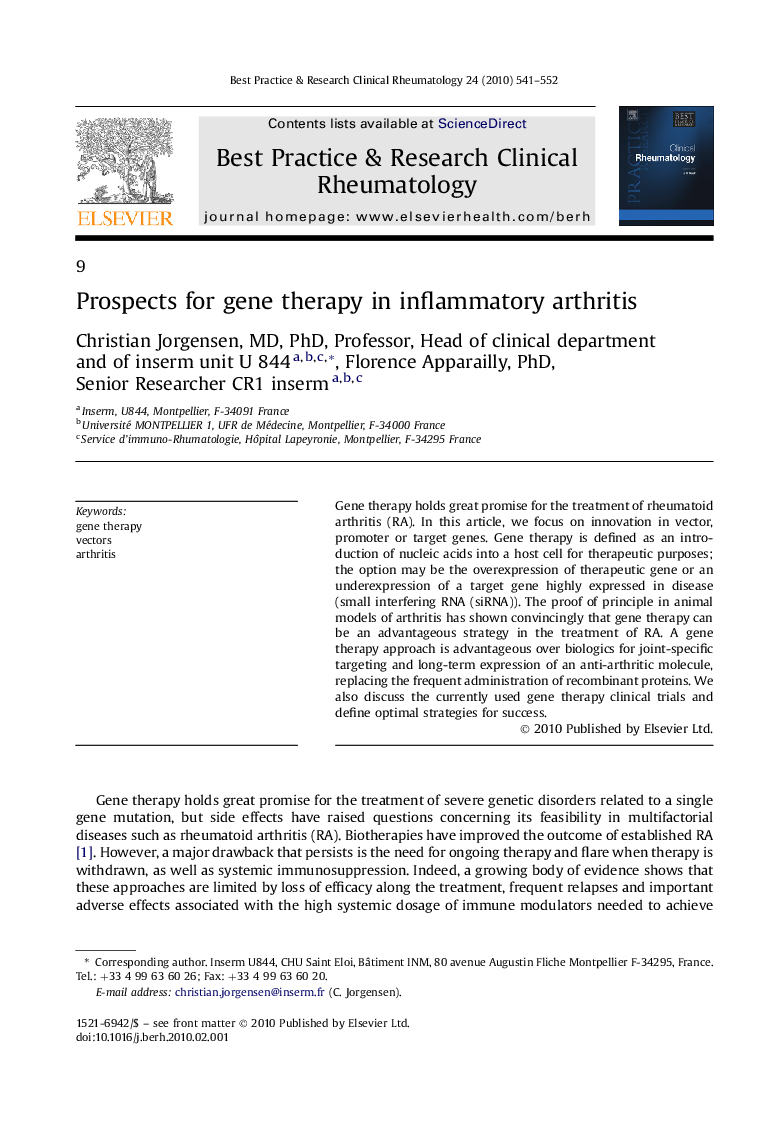| Article ID | Journal | Published Year | Pages | File Type |
|---|---|---|---|---|
| 3342989 | Best Practice & Research Clinical Rheumatology | 2010 | 12 Pages |
Gene therapy holds great promise for the treatment of rheumatoid arthritis (RA). In this article, we focus on innovation in vector, promoter or target genes. Gene therapy is defined as an introduction of nucleic acids into a host cell for therapeutic purposes; the option may be the overexpression of therapeutic gene or an underexpression of a target gene highly expressed in disease (small interfering RNA (siRNA)). The proof of principle in animal models of arthritis has shown convincingly that gene therapy can be an advantageous strategy in the treatment of RA. A gene therapy approach is advantageous over biologics for joint-specific targeting and long-term expression of an anti-arthritic molecule, replacing the frequent administration of recombinant proteins. We also discuss the currently used gene therapy clinical trials and define optimal strategies for success.
